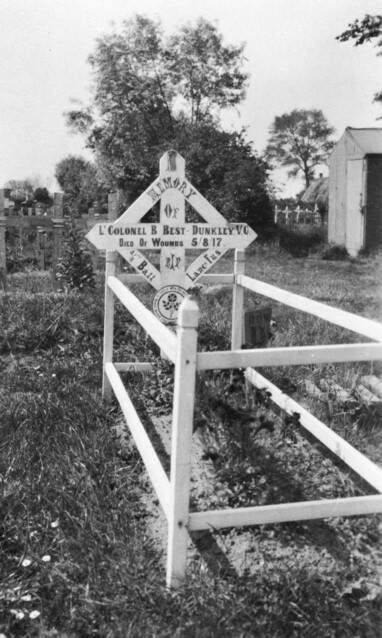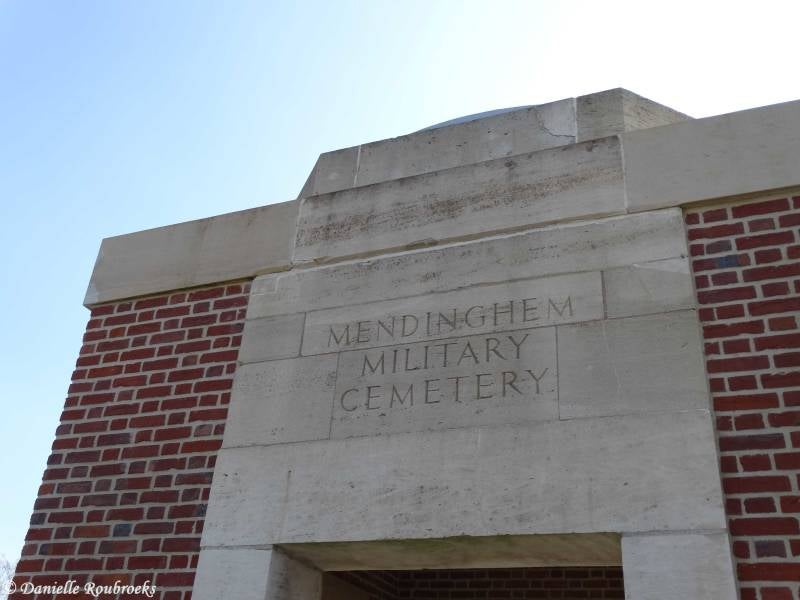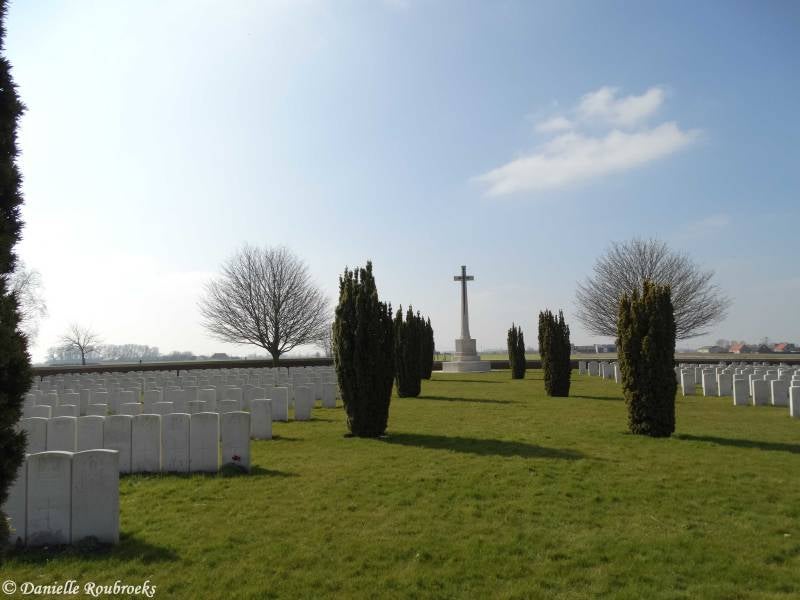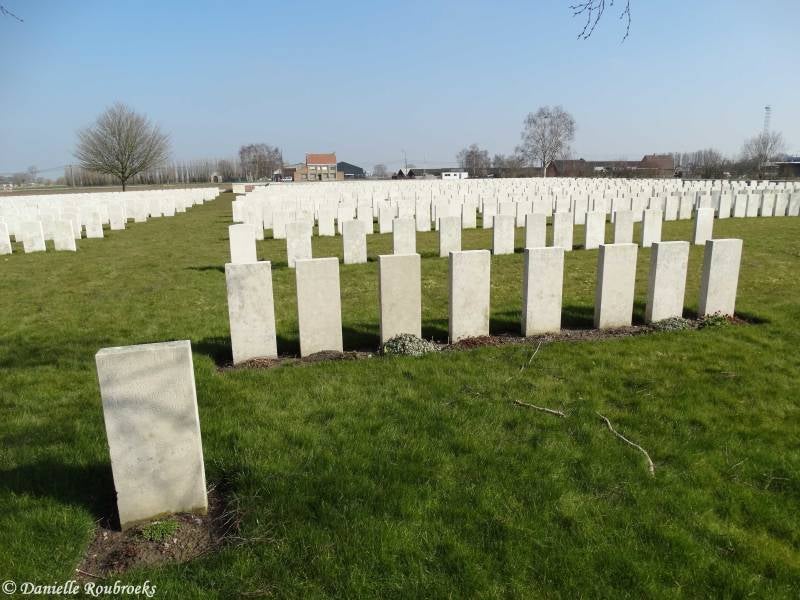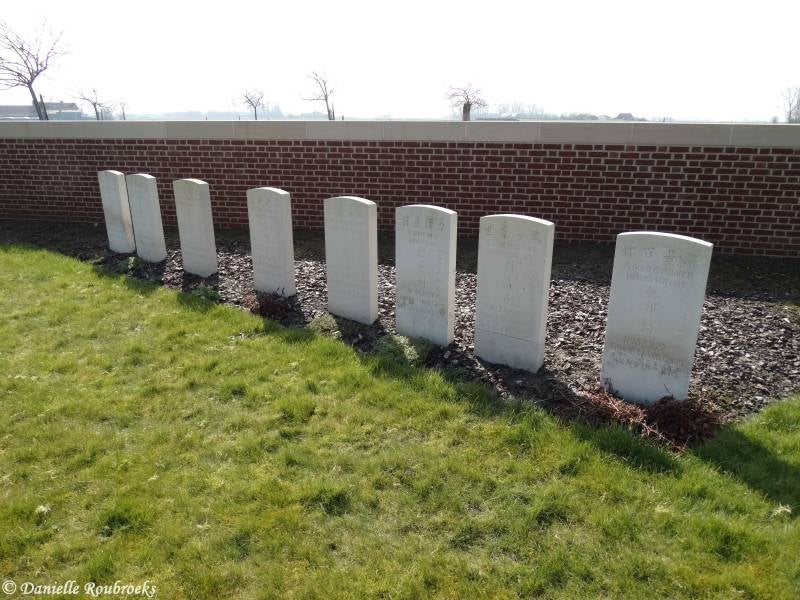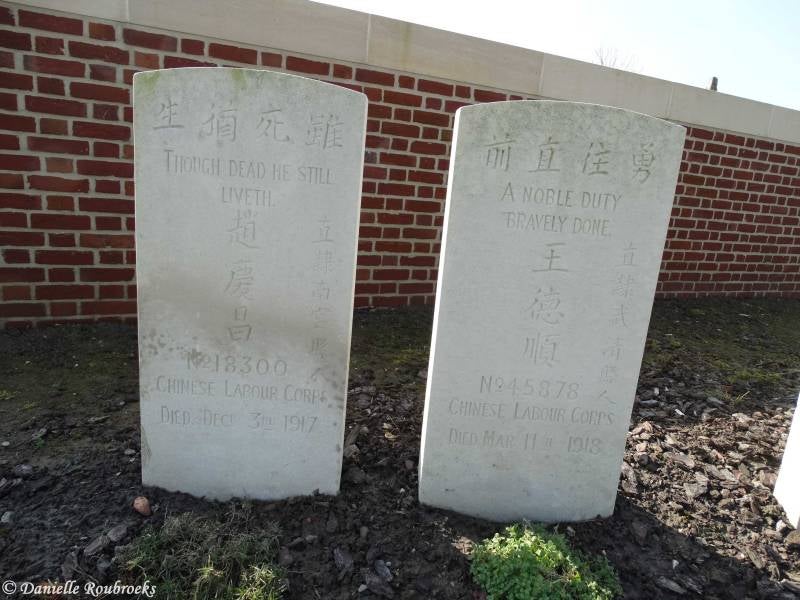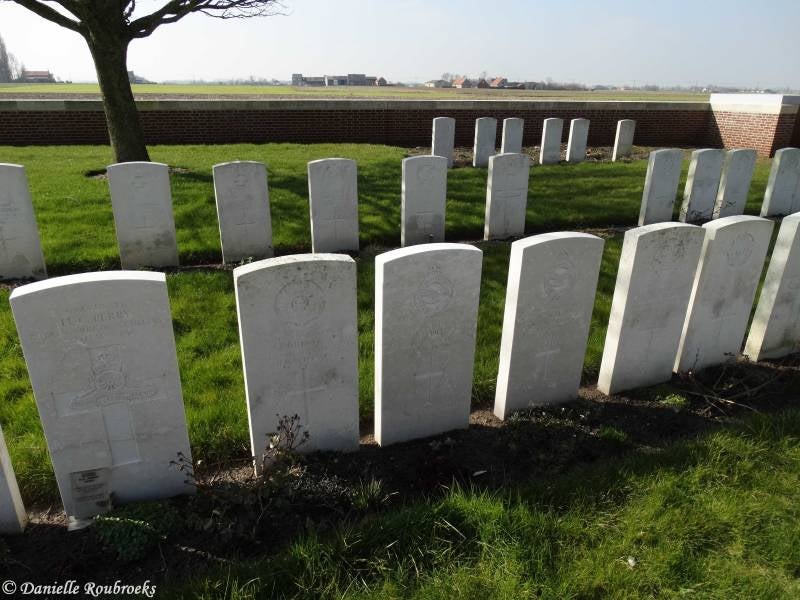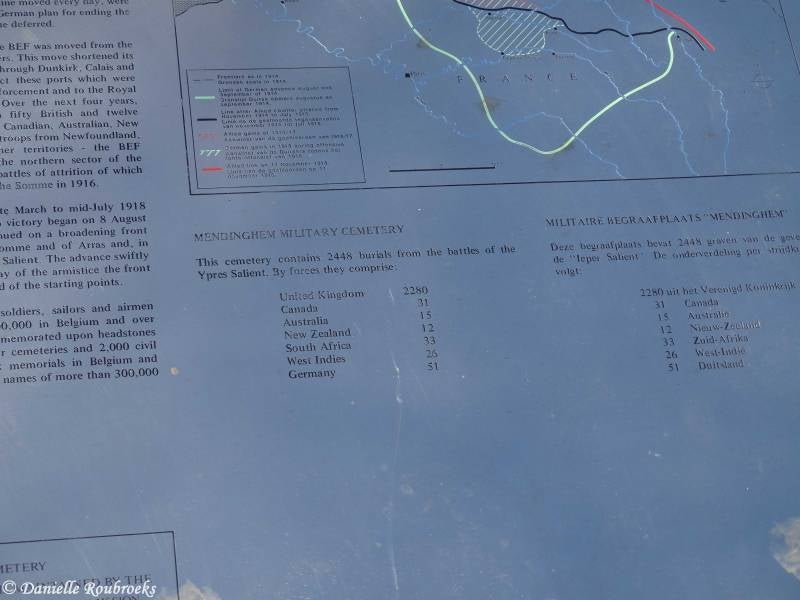Mendinghem Military Cemetery
History Information (Source: CWGC)
Mendinghem, like Dozinghem and Bandaghem, were the popular names given by the troops to groups of casualty clearing stations posted to this area during the First World War. In July 1916, the 46th (1st/1st Wessex) Casualty Clearing Station was opened at Proven and this site was chosen for its cemetery. The first burials took place in August 1916. In July 1917, four further clearing stations arrived at Proven in readiness for the forthcoming Allied offensive on this front and three of them, the 46th, 12th and 64th, stayed until 1918. From May to July 1918, while the German offensive was at its height, field ambulances were posted at Proven. The cemetery was closed (except for one later burial) in September 1918.
There are now 2,391 Commonwealth burials of the First World War in this cemetery and 52 German war graves. The cemetery was designed by Sir Reginald Blomfield.
Served with
· United Kingdom (2294)
· German (51)
· South African (33)
· Canadian (31)
· Australian (15)
· New Zealand (12)
Served in
· Army (2343)
· Air Force (76)
· Navy (17)
VICTORIA CROSS
Lieutenant Colonel Bertram BEST-DUNKLEY - Commanding 2nd/5th Bn. Lancashire Fusiliers
Died 05 August 1917 Age 27
Country of Service: United Kingdom
Awards: Victoria Cross, Mentioned in Despatches
Citation
An extract from the London Gazette No. 30272, dated 4th Sept., 1917, records the following. "For most conspicuous bravery and devotion to duty when in command of his battalion, the leading waves of which, during an attack, became disorganised by reason of rifle and machine gun fire at close range from positions which were believed to be in our hands. Lt. Col. Best-Dunkley dashed forward, rallied his leading waves, and personally led them to the assault of these positions, which, despite heavy losses, were carried. He continued to lead his battalion until all their objectives had been gained. Had it not been for this officer's gallant and determined action it is doubtful if the left of the brigade would have reached its objectives. Later in the day, when our position was threatened, he collected his battalion headquarters, led them to the attack, and beat off the advancing enemy.
Grave Reference: III. D. 1.
(Source: Wikipedia)




